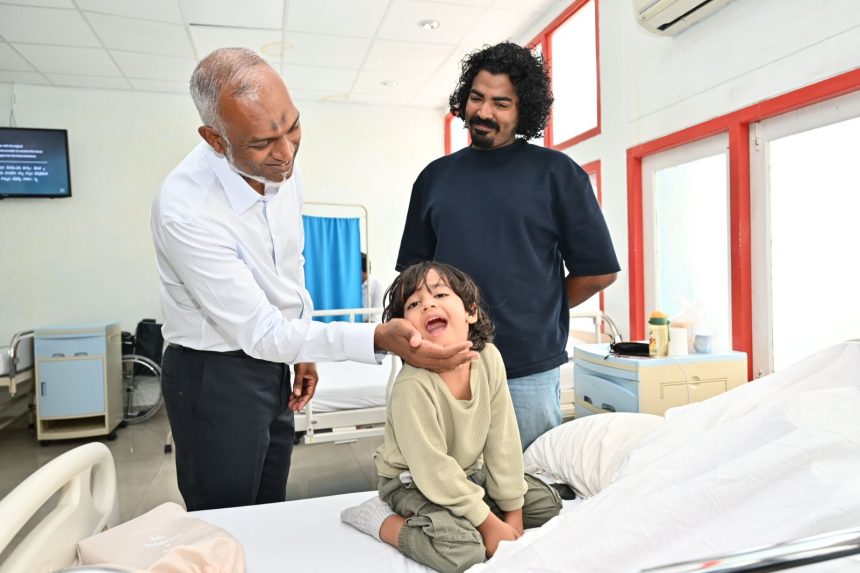In a decisive response to escalating concerns from thalassemia patients, President Dr. Mohamed Muizzu conducted an unannounced visit to the National Thalassemia Center on Sunday morning. This action follows a protest staged by patients and their families the previous night, highlighting grievances over blood wastage and demanding administrative changes.
— The President’s Office (@presidencymv) March 23, 2025
During his visit, President Muizzu engaged directly with patients undergoing blood transfusions, attentively listening to their pressing concerns. He assured them of the government’s commitment to promptly address the issues raised. Accompanied by Health Minister Abdulla Nazim Ibrahim and Finance Minister Moosa Zameer, the President also inspected the facility’s infrastructure and met with the center’s staff to assess operational challenges.
The protest, which unfolded outside the center on Saturday night, was sparked by increasing reports of blood wastage due to damaged filters. Demonstrators called for the resignation of key officials, including Maldives Blood Service’s Public Health Coordinator Faisal Ibrahim and State Minister for Health Aminath Shiruna.
The Maldives bears the highest beta-thalassemia carrier frequency globally, with approximately 16% of the population affected. This genetic disorder necessitates regular blood transfusions and comprehensive medical care, underscoring the critical role of the National Thalassemia Center.
In a strategic move to enhance patient care, President Muizzu announced plans for a dedicated Thalassemia Hospital in Hulhumalé. The government has allocated funds and designated a 72,000 square-foot land plot for this purpose. Notably, telecommunications provider Ooredoo has pledged RF 100 million towards the hospital’s construction, reflecting a robust public-private partnership aimed at elevating healthcare infrastructure.
This initiative aligns with the administration’s broader commitment to healthcare self-sufficiency. Recent efforts include the operationalization of an Air Ambulance service and the introduction of free bone marrow transplants, with 14 patients currently enrolled and three having completed treatment.
President Muizzu’s proactive engagement at the National Thalassemia Center signals a renewed governmental focus on addressing the urgent needs of thalassemia patients. By prioritizing infrastructure development and responsive healthcare services, the administration aims to significantly improve the quality of life for those affected by this pervasive genetic disorder.




